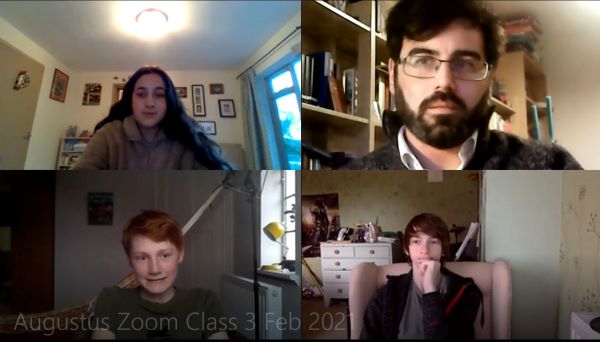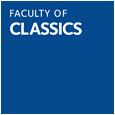Lockdown Latin Club
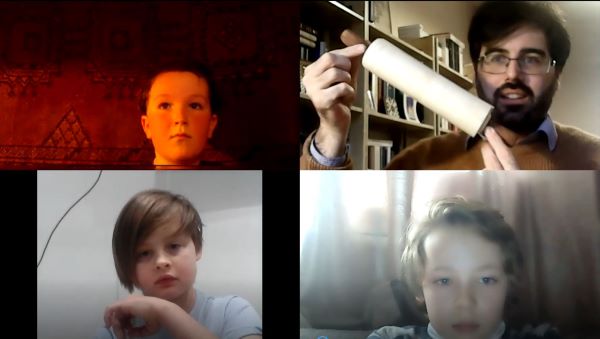
by Dr Andrew Sillett
Only a few hundred yards up the road from the Classics Faculty, at the junction where the Woodstock and Banbury Roads diverge (or meet, depending upon your perspective) sits St Giles’ Church. I’m not sure I ever paid it much heed as an undergraduate, although the hourly tolling of its church bell gave me the frequent reminder that I was running late for one of Matthew Leigh’s tutorials at St Anne’s. As a graduate student, however, I was invited to start singing in its choir. Not because I have a particularly strong voice or because I look especially fetching in a blue cassock, but because it offered me the opportunity to become part of an educational experiment.
The newly appointed choir director had a plan to make the sort of musical education and training received by a chorister at New College, Magdalen College or Christ Church Cathedral available to children who do not attend the schools attached to those choirs. Over the last ten years I have seen the tiny choir I joined grow into a large and flourishing educational establishment at which boys and girls of all ages and backgrounds can come together to learn, study and make music.
Apart from the confidence boost the children no doubt got from measuring their musical competence against mine, I made myself useful in two main ways. The first was to help with the Latin pieces we sang – explaining the meaning of the words and the shape of the sentences. The second came in the holidays. Every summer the choir undertakes an Italian singing tour, and I snap into tour guide mode. The Roman Forum, the Vatican Museums, the Cisterne Romane at Todi, the Colosseum, the theatres of Taormina and of Volterra, the Grottoes of Catullus – with my clipboard and hat I took the choristers and their families behind the scenes of all these places, subtly evangelizing the joys of studying the ancient world.
And then came Covid-19.
The lockdown of March 2020 presented a double-whammy to our choristers. Not only was singing out of the question, but the speed at which lockdown had been imposed meant that the vast majority of them were receiving zero face-to-face schooling. Into that void stepped my Lockdown Latin Club.
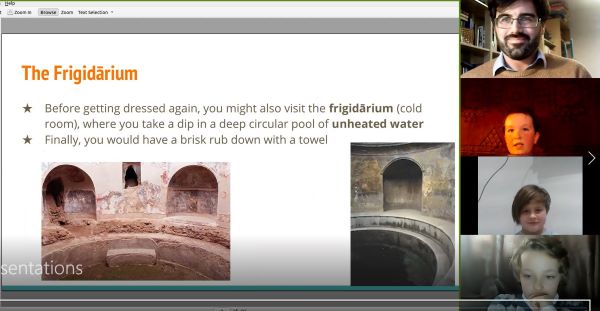
My original plan had been to offer two 20 minute lessons per week to any chorister who wanted them, as long as Lockdown continued. We would start with the very basics and see how far we could get in the following weeks (or even months). It rapidly became clear that I had underestimated two things. The first and most obvious was the duration of lockdown. But the more important second thing was the speed at which these children could pick up the language. They were quick to grasp grammatical concepts, diligent when it came to learning vocabulary, and – thanks to their experience with scales and arpeggios – remarkably good at chanting their declensions and conjugations until they were committed to memory.
It quickly became clear that Latin at St Giles’ was not going to be a passing fancy to be set aside once life returned to normal. The children enjoyed the rigour of learning the language, they were fascinated by the perspective it opened up on learning about the Romans, and they had no intention of giving it up once they returned to school.
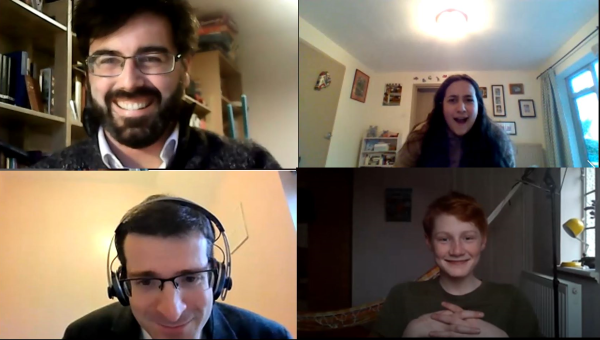
In order to put the Lockdown Latin Club on a permanent footing, one which will outlast the pandemic and become a regular feature at St Giles’, I realized that I would need a more formal curriculum, and to achieve that I needed a textbook. So I turned to the Classics Faculty for help, specifically to Edith Johnson, our Outreach Officer, to Arlene Holmes-Henderson, our Senior Research Fellow in Classics Education, and to Audrey Cahill, our senior administrative officer. Having explained my situation to them, they snapped into action and generously provided each of my students with their own copy of the Cambridge Latin Course – the very textbook with which I took my first steps into Latin as an 18-year old at a Latin Summer School, preparing to start my studies as a Course II Classics student.
To say thank you for supporting their language learning, my students decided to put what they’ve learnt over the last year into practice, and so a group of them composed and filmed the following letter:
https://www.youtube.com/embed/TWz6qBh0_UcIf you know a child who loves to sing (or, indeed, if you do yourself) please do get in touch with our choir director Nicholas Prozzillo (choirdirector@st-giles-church.org). We are always on the lookout for new choristers to join our Boys and Girls Choirs. We also have an adult choir, and a newly formed Youth Choir for teenage singers.
Please see the website for further information: https://www.st-giles-church.org/music/#
